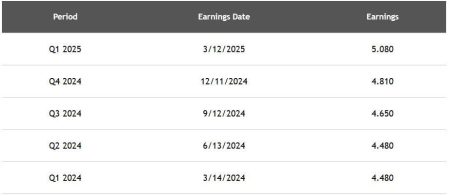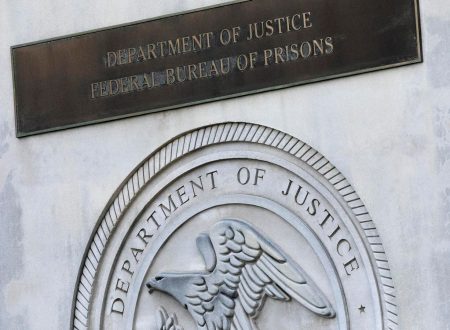The Federal Bureau of Prisons (BOP) has proposed significant changes to its Inmate Financial Responsibility Program (IFRP), sparked by public outcry over high-profile inmates like Larry Nassar and R. Kelly accumulating substantial sums in their commissary accounts while owing restitution to their victims. This proposal, a supplemental notice following an initial draft, aims to redirect a larger portion of inmate funds towards satisfying financial obligations, raising concerns about the potential impact on the overall prison environment and the welfare of inmates, particularly those with limited financial resources.
The IFRP, established in 1987, was designed to encourage inmates to manage their finances responsibly and prioritize victim restitution. While participation is technically voluntary, refusal carries penalties, including restricted access to commissary and exclusion from pre-release programs. This inherent coercion raises questions about the program’s true voluntariness, especially for inmates serving long sentences who rely on commissary funds for basic necessities not adequately provided by the BOP. The cases of Nassar and Kelly highlighted a flaw in the system, allowing them to shield significant assets while ignoring their financial obligations. However, this situation contrasts sharply with the reality faced by many inmates who struggle to afford even basic hygiene products due to low pre-incarceration wages and meager prison job earnings. Commissary funds often supplement inadequate prison diets, allowing inmates to purchase protein-rich foods like canned tuna and chicken.
The proposed changes mandate that inmates contribute 75% of any funds received from external sources to the IFRP. While the BOP suggests a minimum quarterly contribution of $25 for those with restitution orders, the reality of pennies-per-hour prison jobs and the potential for dwindling family support over long sentences makes this seemingly modest amount a significant burden for many. The $360 monthly spending limit for commissary items like phone calls, emails, clothing, and hygiene necessitates external financial support for most inmates, as few prison jobs provide adequate income. This new rule effectively redirects the majority of this external support towards the IFRP, potentially leaving inmates with insufficient funds for basic necessities.
This proposed policy shift appears to follow the BOP’s pattern of penalizing the entire prison population for the actions of a few. Similar to the widespread use of lockdowns in response to isolated incidents of contraband or rule violations, this sweeping change to commissary access seems disproportionate to the issue at hand. While preventing the accumulation of vast sums by a small number of inmates is a valid concern, the proposed solution threatens the well-being of the broader inmate population. Access to commissary funds contributes to a more stable prison environment by allowing inmates to purchase necessary items and supplement inadequate prison provisions, effectively reducing the burden on taxpayers. Furthermore, the problem of excessive commissary wealth is not widespread; reports suggest only a small fraction of the inmate population holds significant balances.
The financial burden of incarceration extends beyond prison walls, impacting the families of incarcerated individuals. The Fines and Fees Justice Center reports that families often bear the brunt of conviction-related costs, with many struggling to afford these expenses despite making significant sacrifices. The proposed changes to the IFRP further exacerbate this burden by limiting the financial support families can provide for basic necessities, potentially increasing hardship for both inmates and their loved ones. This policy shift fails to address the underlying systemic issues that contribute to financial instability for incarcerated individuals and their families, instead opting for a blanket approach that disproportionately impacts those with limited resources.
Furthermore, the BOP itself benefits financially from inmate commissary spending. Millions of dollars are allocated from commissary proceeds to fund staff salaries and benefits for those managing recreational programs and commissary operations. These programs ostensibly benefit inmates by providing recreational opportunities and supporting the commissary system. However, the proposed changes raise concerns about the potential for a conflict of interest, as diverting a larger portion of inmate funds to the IFRP could simultaneously reduce the resources available for these programs, impacting the very staff whose salaries are partially derived from commissary proceeds. This complex financial interplay highlights the need for a more nuanced approach that considers the multifaceted implications of altering the IFRP.
The likely consequence of drastically reducing inmate access to commissary funds is a rise in contraband and institutional instability. Inmates without financial obligations, who are not required to participate in the IFRP, may become targets for others seeking to purchase commissary items, potentially fueling a black market within the prison. This, coupled with the existing challenges of understaffing within the BOP, could further strain an already overburdened correctional system. The DOJ and BOP’s request for supplemental comments suggests they are aware of the potential ramifications of this policy shift. Facing pressure from Congress, advocacy groups, correctional officers’ unions, and the public to improve prison operations, the BOP must carefully consider whether these changes to the IFRP will truly achieve their intended goals or exacerbate existing problems. A more targeted approach, focusing on preventing the abuse of commissary accounts by a small number of wealthy inmates while preserving access to essential items for the broader population, would likely be more effective in promoting a stable and humane prison environment.










